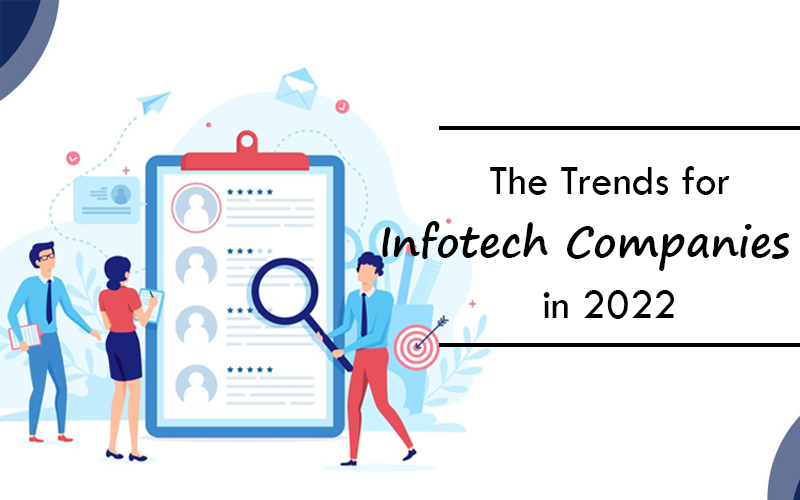We understand that the most crucial trends in 2022 are likely to revolve around the convergence of technology trends, as tools that allow us to combine them in new and amazing ways emerge.
Artificial Intelligence Is Present Everywhere – Infotech Companies
Smart used to simply mean connected – smartphones, smart TVs, and a plethora of other smart devices were essentially the same old toys that were now connected to the internet. Today, “smart” increasingly refers to being powered by artificial intelligence (AI) – specifically, machine learning algorithms – and capable of assisting us in increasingly innovative ways. Smart cars use facial recognition algorithms to detect whether we are paying attention to the road and to warn us when we are becoming tired. Smartphones use AI algorithms to do everything from maintaining call quality to assisting us in taking better photos, and they are packed with apps that use AI to assist us in doing just about anything.
It is enumerated that AI has qualitatively permeated the tools we use every day, from voice assistants to language translation and tools that extract structured data from images, whiteboard scribbling, and hand-written notes. Growing data volumes, faster network and processor speeds, and data “democratization” (more on this below) are combining to affect society in ways that are far greater than the sum of their parts.
The No-code Revolution and Everything-as-a-service – Infotech Companies
The ongoing democratisation of data and technology will be another powerful driver. In recent years, an entire industry has emerged with the goal of putting the skills and tools required for tech-led innovation in the hands of as wide a segment of society as possible, regardless of their expertise or experience. Cloud solutions for storage, network and processing mean costs and risks of setting up expensive infrastructure in order to try out new ideas are heavily mitigated. Hybrid solutions – for when public cloud services aren’t entirely appropriate, such as when dealing with highly confidential or valuable data – have matured to the point where a “best of both worlds” solution is frequently viable.
Digitization, Datafication, and Virtualization
Many of us witnessed the virtualization of our offices and workplaces in 2020 and 2021, as remote working arrangements were quickly implemented. This was simply a crisis-driven acceleration of a much longer-term trend. In 2022, we’ll be more familiar with the concept of a “metaverse” – persistent digital worlds that exist alongside the physical world we live in. Inside these metaverses, such as the one recently proposed by Facebook founder Mark Zuckerberg, we will perform many of the functions we are accustomed to performing in the real world, such as working, playing, and socialising.
Transparency, Accountability, and Governance – Infotech Companies
We humans must be able to trust technology in order for it to function. We are already seeing (rightly) strong pushback against many current uses of technology that are perceived as obtrusive, dangerous, or irresponsible. AI, in particular, is sometimes depicted as a “black box,” which means we can’t see inside to understand how it works. This is frequently due to its complexity rather than any malign intent to limit our understanding, but the effect is the same. This adeptly means that incidents in which AI is shown to be harmful – such as when Facebook recently labelled images of black people as “primates” – are extremely concerning. This is especially true in a society that is beginning to look to AI for life-changing decisions like hiring and firing.
Solutions for Renewable Energy
Renewable energy was the only type of energy that saw an increase in usage during the pandemic. Renewable energy use increased by 40% in the United States during the first ten weeks of the lockdown. Globally, all non-renewable energy consumption decreased as industries closed and people stayed at home, resulting in an 8% reduction in emissions. As a result, it is expected that more investment will be made in renewable energy generation in the coming years.

















